1. Richard Nixon – The Watergate Cover-Up
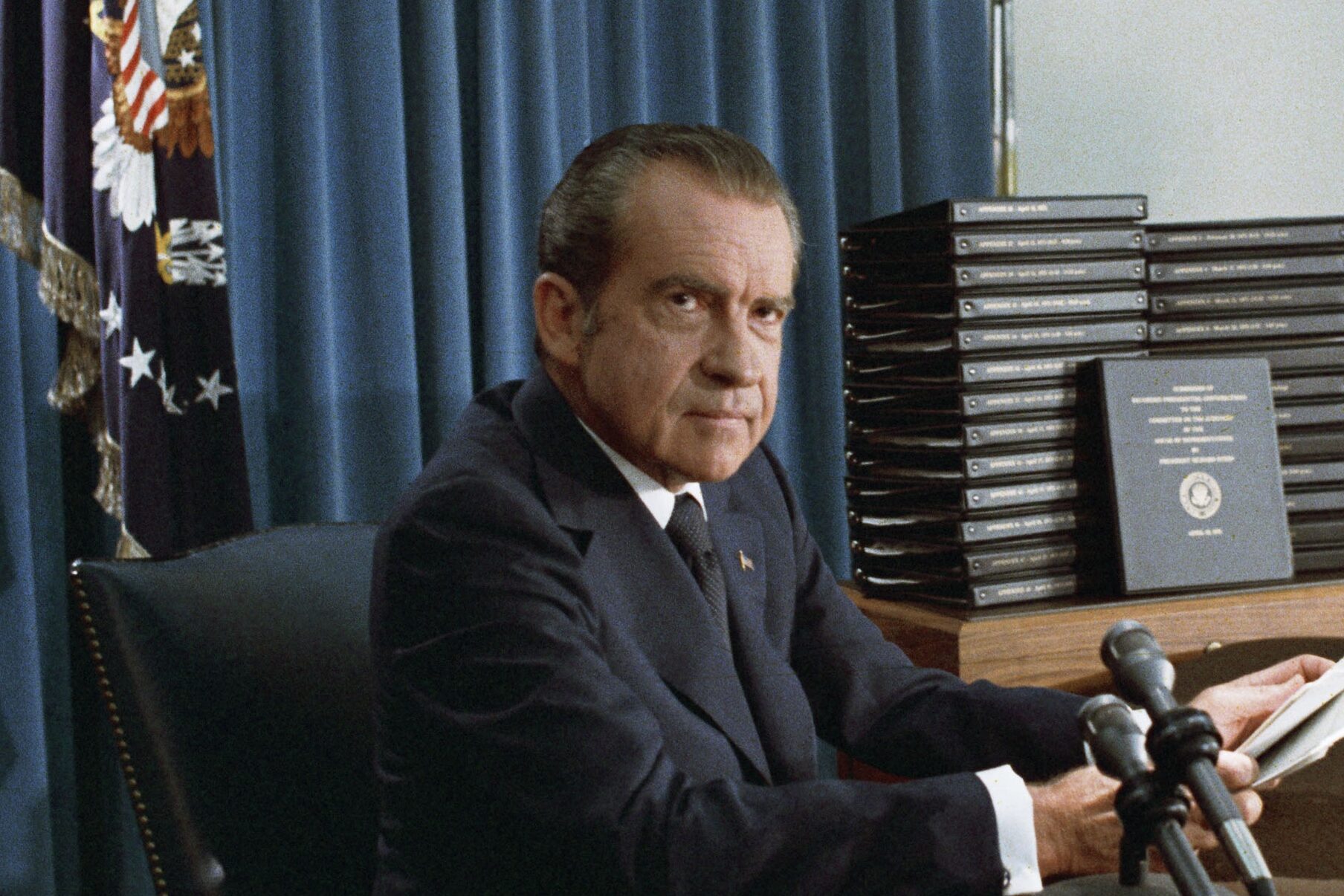
Richard Nixon opened relations with China and signed important environmental legislation. But his presidency is forever defined by Watergate—the scandal he made far worse by trying to cover it up, according to Andrew Kohut of the Pew Research Center. Rather than come clean about the break-in at the Democratic National Committee, Nixon ordered hush money payments and obstructed the investigation. When the truth came out, the cover-up was far more damaging than the original crime.
The release of the White House tapes revealed the depth of Nixon’s involvement. Facing impeachment, he resigned in disgrace in 1974—the first and only U.S. president to do so. Nixon’s obsession with enemies and power undid a presidency that had real accomplishments. His downfall became a cautionary tale about unchecked executive authority.
2. Andrew Jackson – The Indian Removal Act

Andrew Jackson is often remembered as a populist hero and a man of the people. But his most defining decision—the Indian Removal Act of 1830—led to one of the darkest chapters in U.S. history: the Trail of Tears, Caryl-Sue Micalizio of National Geographic explains. This policy forcibly displaced thousands of Native Americans from their ancestral lands in the southeastern U.S., despite resistance and even a Supreme Court ruling in their favor. Jackson ignored the court and moved ahead anyway.
It’s a stark example of a president using executive power to override moral and legal constraints. Jackson believed he was protecting American settlers and helping states’ rights, but the result was mass suffering and death. His decision also set a precedent for executive overreach that troubled future generations. Even those who admire Jackson’s leadership can’t ignore the devastating legacy of Indian removal.
3. James Buchanan – Doing Nothing About Secession
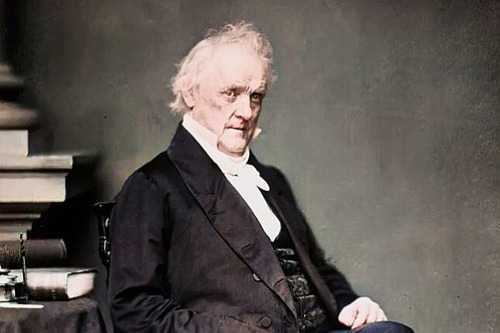
James Buchanan is perhaps most famous—or infamous—for doing nothing as the country spiraled toward Civil War, according to Robert McNamara of ThoughtCo. When Southern states began seceding in late 1860, Buchanan essentially threw up his hands and said, “Not my problem.” He believed secession was illegal but also thought the federal government had no constitutional power to stop it. That inaction proved catastrophic.
Rather than trying to unify the country or contain the crisis, Buchanan left it for Lincoln to handle. His passivity allowed secessionist momentum to build unchecked, with no federal resistance. Many historians consider this a failure of leadership at a moment that demanded strength. Buchanan’s refusal to act became his legacy—and the final unraveling of the Union.
4. Abraham Lincoln – Suspension of Habeas Corpus

Lincoln is rightly celebrated for saving the Union and ending slavery, but even his legacy has some controversial decisions. Chief among them was his suspension of habeas corpus during the Civil War, according to Robin Levinson King of the BBC. That move allowed the military to arrest and detain individuals without trial, especially in border states like Maryland. Lincoln defended it as necessary to preserve the Union—but it sparked intense debate over civil liberties.
Critics at the time and since have argued that Lincoln overreached his constitutional powers. Even Chief Justice Roger Taney ruled the suspension unconstitutional (though Lincoln ignored the ruling). While the country was at war, the line between security and liberty blurred dangerously. For all his greatness, Lincoln’s boldest wartime decision also tested the limits of presidential power.
5. Woodrow Wilson – The Treaty of Versailles
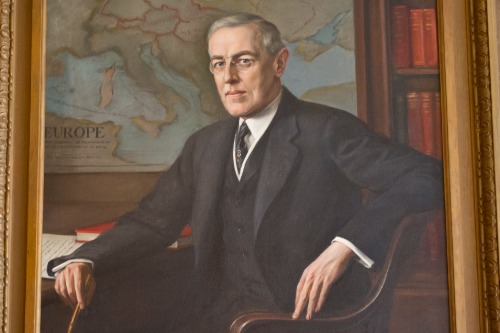
Woodrow Wilson went to Europe after World War I with dreams of reshaping the world through his Fourteen Points and the League of Nations. He played a major role in drafting the Treaty of Versailles, which ended the war. But in trying to appease Britain and France, Wilson agreed to harsh penalties against Germany—reparations and territorial losses that fueled resentment and economic hardship. Many historians see this as laying the groundwork for World War II.
Wilson’s refusal to compromise with Congress also doomed the League of Nations at home. Despite having proposed it, he couldn’t get the Senate to ratify the treaty. His health collapsed during a national speaking tour to drum up support, and the U.S. never joined the League. His most famous achievement abroad turned into a diplomatic and domestic failure.
6. Herbert Hoover – The Response to the Great Depression
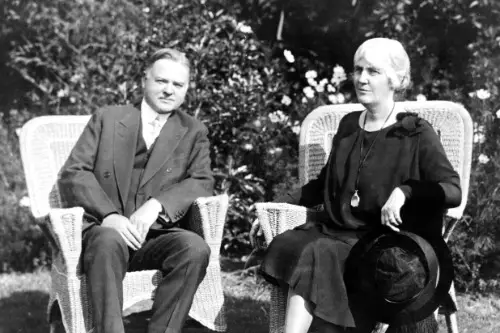
Herbert Hoover is often remembered as the president who failed to stop the Great Depression—and there’s truth to that. His most famous policy stance was his firm belief in “rugged individualism,” the idea that people should lift themselves up without much government help. But as banks failed and unemployment soared, Hoover stuck to his guns and resisted federal relief efforts. He relied on volunteerism and business cooperation, which proved woefully inadequate.
His decision not to directly intervene made him a symbol of government inaction. The Bonus Army debacle in 1932, where World War I veterans were violently evicted from their protest encampment in D.C., sealed his reputation. Hoover did authorize some limited aid, but far too late. What he saw as principled leadership came across as cold and ineffective.
7. Franklin D. Roosevelt – Japanese American Internment

FDR is rightly praised for guiding the U.S. through the Great Depression and World War II. But one of his most infamous decisions came in 1942 with Executive Order 9066, which authorized the internment of over 100,000 Japanese Americans. These citizens—most of whom were born in the U.S.—were forced into camps without due process simply because of their ethnicity. The government claimed it was for national security, but it was driven largely by racism and wartime hysteria.
Even at the time, there were voices within the administration who opposed the move. But FDR prioritized military advice and political unity over civil liberties. The policy devastated families and left a legacy of shame, later acknowledged by a formal apology and reparations in 1988. It’s a stark reminder that even great presidents can make deeply unjust decisions.
8. Harry S. Truman – Dropping the Atomic Bomb
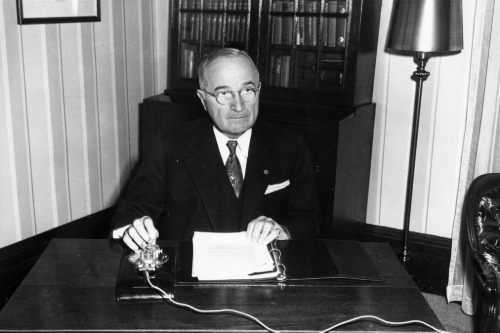
Truman’s decision to drop atomic bombs on Hiroshima and Nagasaki in 1945 remains one of the most consequential and controversial in human history. The bombings effectively ended World War II, saving what was projected to be hundreds of thousands of American lives in a land invasion of Japan. But they also killed over 100,000 civilians and introduced the world to the terrifying reality of nuclear warfare. Truman stood by the choice as necessary, but the moral cost was staggering.
Historians still debate whether Japan would have surrendered without the bombs. Some argue that Japan was already close to collapse, and alternatives like a demonstration or modified surrender terms might have worked. Truman’s bold decision won the war—but ushered in the Cold War nuclear arms race. His defining moment was also a moment of irreversible global change.
9. Lyndon B. Johnson – Escalation in Vietnam
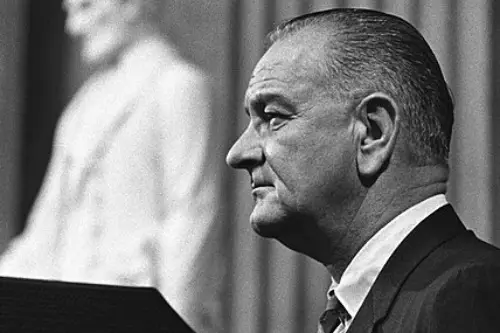
LBJ signed landmark civil rights legislation and launched the Great Society, but he is equally remembered for dragging the U.S. deeper into the Vietnam War. Believing in the “domino theory,” Johnson committed more troops and resources after the Gulf of Tonkin incident in 1964. His decision to escalate turned a regional conflict into a full-blown American war. The human toll—on both sides—was devastating.
Johnson believed that backing down would hurt U.S. credibility during the Cold War. But the more he tried to win, the deeper he sank, and public opinion turned sharply against him. The war overshadowed his domestic achievements and led him to forgo running for re-election in 1968. His most decisive move abroad became a tragic quagmire at home.
10. Thomas Jefferson – The Louisiana Purchase

Jefferson is often hailed for the Louisiana Purchase in 1803, which doubled the size of the U.S. and opened vast new lands for expansion. But while this bold move was visionary, it contradicted Jefferson’s own strict interpretation of the Constitution—he didn’t believe the federal government had the authority to buy land like that. The purchase also fueled westward expansion that ultimately led to Native American displacement and violent conflict. Jefferson’s famous land deal became a cornerstone of Manifest Destiny, but at great human and political cost.
At the time, Jefferson worried he was overstepping his authority as president. Yet the opportunity was too good to pass up, so he made the deal and justified it later. That contradiction haunted his legacy, especially given how it clashed with his earlier ideals about limited government. What started as a brilliant real estate move helped set the stage for decades of expansionism and displacement.
11. Ronald Reagan – Iran-Contra Affair

Reagan is often admired for helping end the Cold War, but his administration was rocked by the Iran-Contra scandal. His team sold weapons to Iran (despite an arms embargo) and funneled the proceeds to Contra rebels in Nicaragua—directly violating a congressional ban. Reagan claimed he didn’t know the details, but it happened on his watch. The scandal undermined his image as a principled leader.
Congress launched investigations, and several officials were indicted or convicted, though many were later pardoned. Reagan’s approval ratings dipped temporarily, but he managed to survive politically. Still, the affair raised serious questions about transparency and the rule of law. His bold foreign policy decision became a constitutional controversy.
12. George W. Bush – The Iraq War
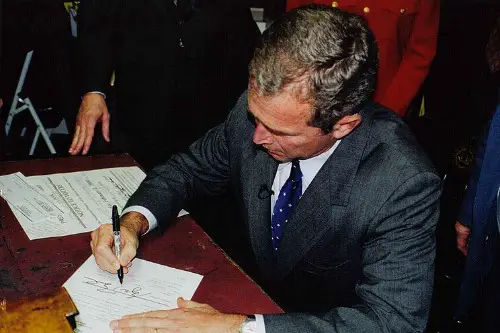
George W. Bush will always be linked to his decision to invade Iraq in 2003. Sold to the American people as necessary to eliminate weapons of mass destruction, the war was launched on faulty intelligence. No such weapons were found, and the invasion destabilized the region for years to come. What was meant to be a quick mission turned into a prolonged conflict with high costs in lives and resources.
Bush believed removing Saddam Hussein would promote democracy in the Middle East. Instead, it contributed to the rise of extremist groups like ISIS and fractured Iraqi society. The war damaged America’s credibility and became a point of deep national regret. Bush’s most defining move is now seen as one of his biggest missteps.
13. Barack Obama – Intervention in Libya
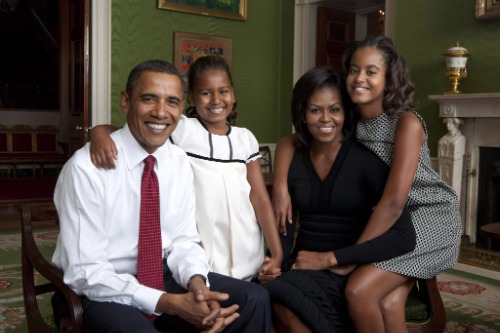
Barack Obama is remembered for passing the Affordable Care Act and stabilizing the economy after the Great Recession. But one of his more controversial foreign policy decisions was leading a NATO intervention in Libya in 2011. The mission helped overthrow dictator Muammar Gaddafi but left a power vacuum that plunged the country into chaos. Obama later called it the “worst mistake” of his presidency.
The administration failed to plan for what would come after Gaddafi’s fall. Libya descended into civil war, became a haven for extremists, and saw human trafficking and refugee crises intensify. What started as a humanitarian intervention backfired dramatically. It’s a case where good intentions weren’t matched with a sustainable strategy.
14. Joe Biden – The Withdrawal from Afghanistan

Joe Biden fulfilled a long-standing U.S. goal when he completed the withdrawal from Afghanistan in August 2021. The war had stretched on for two decades, and most Americans supported ending it. But the withdrawal was chaotic—images of Afghans clinging to planes, the fall of Kabul to the Taliban, and the deaths of U.S. service members in a bombing at the airport shocked the world. Critics argued the exit was rushed and poorly executed.
Biden stood by his decision, saying there was no good time to leave. Still, the aftermath raised serious questions about planning and intelligence. Allies were frustrated, and adversaries saw an opportunity. What Biden hoped would be a legacy-defining end to a “forever war” became a moment of crisis.


